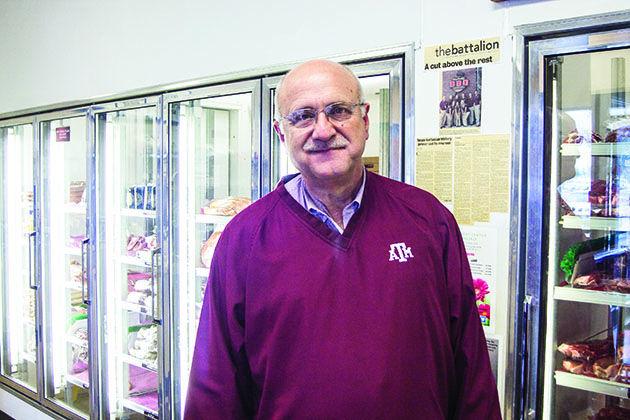The Battalion news reporter Lenae Allen sits down with Jeffrey Savell, University Distinguished Professor and leader of the meat science section in the Department of Animal Sciences to discuss changes in the meat industry during his 38 years at Texas A&M.
THE BATTALION: Tell us about yourself and how you came to work in meat science.
SAVELL: Well, I grew up in Ferris, Texas, which is just south of Dallas. So, as a rural area and a farming background, a lot of people worked in Dallas. My dad was an ag, though he was more in the crops. He hauled hay, hauled cotton, worked at the gins and in the cotton community. I got involved in FFA in high school, started showing and raising livestock and also judging. I got involved as a freshman doing meats judging because that’s just what you did. I remember my first trip to Texas A&M was in 1968. Pulling up on the corner of Texas Avenue and University Drive, I looked out and my teacher said, “Boys, that’s A&M.” Now, it was none of the big buildings, none of the tall buildings were there and you still had the old-timey water tower. It was still the biggest thing I had ever seen. I remember going to the old meat lab and just being fascinated. I ended up doing livestock judging later on, but I kept coming back to the meats.
THE BATTALION: How many people have talked to you about your program, your classes and Camp Brisket?
SAVELL: I have no idea how many emails I’ve gotten. I mean, there’ve been hundreds of people contacting us saying they want to come to one of those. I had a guy who met me just outside of the Rec and said, “I want to come to Camp Brisket,” so I looked at Google Analytics and saw that our most requested page was the one for Camp Brisket. The funny problem is, the more you do to celebrate it, the more demand it creates.
THE BATTALION: How has the meat industry changed over the years you’ve been involved?
SAVELL: I think the biggest thing I’ve seen is the change in the number of plants or working establishments. There are fewer today, and the one’s that are left are bigger. When I was in grad school, or even during my undergrad, we would go to Dallas to the Newhof meatpacking plant. It’s where American Airlines Arena sits now, so it’s long gone. In Houston, there used to be a lot of plants that were down there. They’re all long gone. They just were not efficient. Now when you go, the plants tend to be bigger and more specialized. Sometimes it’s from regulatory reasons and sometimes it’s just plain economics. Another thing is the growth of super-markets, and the amount of meat that’s sold in supermarkets. Even the changes in supermarkets here in Bryan-College Station, there’s been almost a complete turnover. There used to be Safeway’s, Piggly-Wiggly’s, Winn-Dixie. That’s changed how we market products.
THE BATTALION: Do you believe we’re more of a preventative society when it comes to food scares or are we a reactive society?
SAVELL: My guess is we’re more reactionary. Most of the things that have happened, most of the things that have occurred over time have been reactionary. All the HACCP regulations are post ‘Jack-In-The-Box’ incident. You know, there’s a lot of things that we do today that was because of outbreaks. Everybody always talks about how we need to be on the front end of things, how we need to anticipate, but it’s almost like life comes too fast.
Q&A: Professor talks 3-plus decades of meat science
March 8, 2015
Shelby Knowles — THE BATTALION
Jeffrey Savell, University Distinguished Professor, is the leader of the meat science section in the Department of Animal Science.
Donate to The Battalion
Your donation will support the student journalists of Texas A&M University - College Station. Your contribution will allow us to purchase equipment and cover our annual website hosting costs.




















